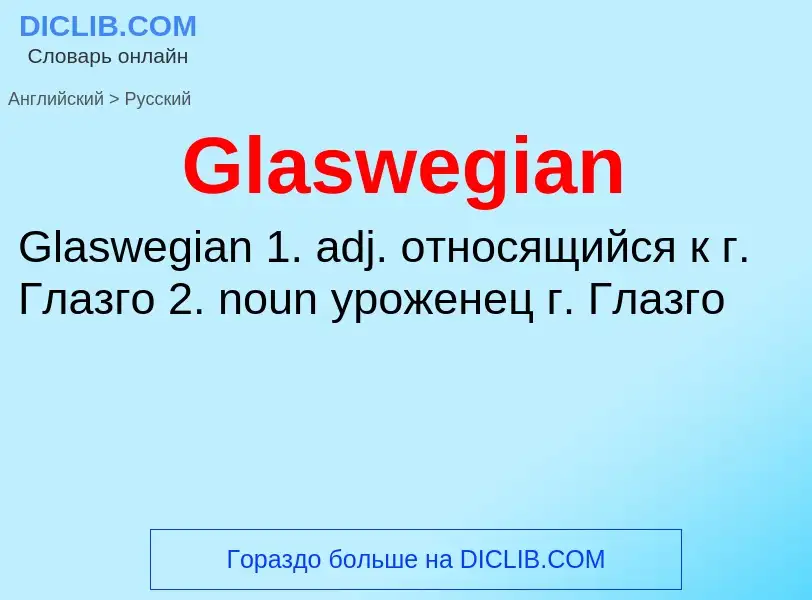Vertaling en analyse van woorden door kunstmatige intelligentie ChatGPT
Op deze pagina kunt u een gedetailleerde analyse krijgen van een woord of zin, geproduceerd met behulp van de beste kunstmatige intelligentietechnologie tot nu toe:
- hoe het woord wordt gebruikt
- gebruiksfrequentie
- het wordt vaker gebruikt in mondelinge of schriftelijke toespraken
- opties voor woordvertaling
- Gebruiksvoorbeelden (meerdere zinnen met vertaling)
- etymologie
Glaswegian - vertaling naar Engels
[glæs'wi:dʒjən]
общая лексика
житель или уроженец г. Глазго
относящийся к г. Глазго
прилагательное
общая лексика
относящийся к г. Глазго
существительное
[glæz|'wi:dʒ(ə)nglɑ:z{'wi:dʒ(ə)n}-]
общая лексика
житель г. Глазго
уроженец г. Глазго
существительное
общая лексика
удар головой
глагол
общая лексика
ударять головой
Definitie
Wikipedia
The Glasgow dialect, popularly known as the Glasgow patter or Glaswegian, varies from Scottish English at one end of a bipolar linguistic continuum to the local dialect of West Central Scots at the other. Therefore, the speech of many Glaswegians can draw on a "continuum between fully localised and fully standardised". Additionally, the Glasgow dialect has Highland English and Hiberno-English influences owing to the speech of Highlanders and Irish people who migrated in large numbers to the Glasgow area in the 19th and early 20th centuries. While being named for Glasgow, the accent is typical for natives across the full Greater Glasgow area and associated counties such as Lanarkshire, Renfrewshire, Dunbartonshire and parts of Ayrshire, which formerly came under the single authority of Strathclyde. It is most common in working class people, which can lead to stigma from members of other classes or those outside Glasgow.
As with other dialects, it is subject to dialect levelling where particularly Scots vocabulary is replaced by Standard English words and, in particular, words largely from colloquial English. However, Glaswegians continue to create new euphemisms and nicknames for well-known local figures and buildings.

